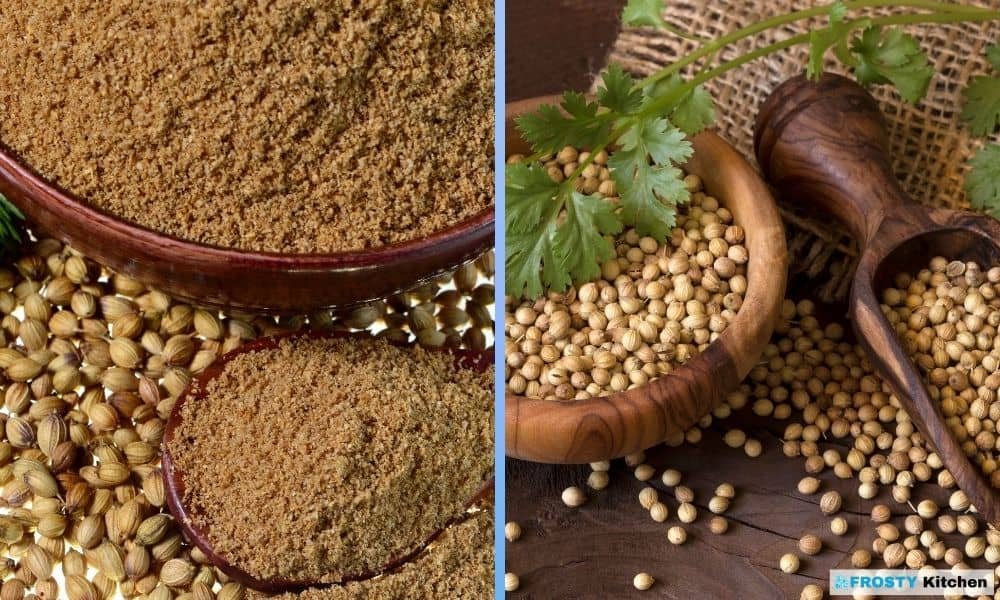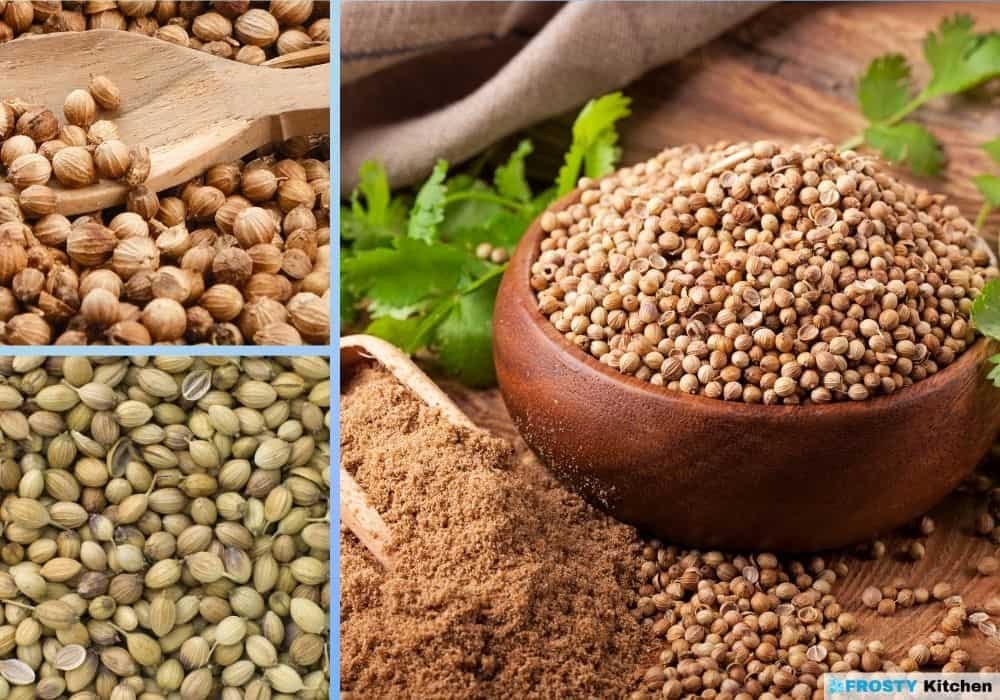Coriander seeds, with their citrusy, sweet flavor, are a prized ingredient in kitchens and a cherished plant in gardens. Their unique taste and aroma make them a staple in various cuisines worldwide. This guide aims to navigate you through the proper storage of coriander seeds to maintain their aromatic essence for your culinary and gardening adventures.
What is Coriander Seeds?
Coriander seeds are the dried fruit of the Coriandrum sativum plant, offering a slightly sweet, citrusy flavor and a warm, spicy aroma. They are commonly used whole or ground into powder in many global cuisines, lending a distinctive flavor profile to a myriad of dishes.
Origin and History
Originating in the Mediterranean and Middle Eastern regions, coriander seeds have found their way into kitchens around the globe over centuries. Their use dates back to ancient times, showcasing a rich history of flavoring foods in various cultures.
Nutritional Value
Coriander seeds are not just about flavor; they bring a range of health benefits:
- Digestive Aid: Known to aid in digestion and help alleviate gastrointestinal issues.
- Anti-inflammatory Properties: They possess anti-inflammatory properties which can help in reducing inflammation.
- Rich in Antioxidants: Coriander seeds are packed with antioxidants which help in fighting oxidative stress.

Importance of Proper Storage for Coriander Seeds
The proper storage of coriander seeds is crucial to retain their aromatic essence and potent flavor, which can elevate any dish they grace.
General Lifespan and Preservation
Coriander seeds, when stored correctly, can maintain their flavor and aroma for up to a year or even longer.
Factors Affecting the Lifespan of Coriander Seeds
Temperature
Storing coriander seeds in a cool, dry place is key to preserving their flavor and aroma, as high temperatures can lead to the loss of essential oils that carry the seeds’ characteristic fragrance.
Exposure to Light
Light can degrade the quality of coriander seeds over time. Storing them in a dark place or in opaque containers can significantly help in preserving their quality.
Moisture Content
Moisture can cause mold and spoilage. Ensuring a dry storage environment is crucial to maintaining the quality and longevity of coriander seeds.
Packaging
Proper packaging, like airtight containers, can shield coriander seeds from adverse environmental conditions, thus preserving their quality.
Air Quality
Good air quality, with low humidity, can significantly prolong the flavor potency and overall quality of coriander seeds.
Signs of Spoiled Coriander Seeds
Appearance
Any visible signs of mold, discoloration, or damage are clear indicators of spoilage in coriander seeds.
Odor
A lack of aroma or an off-putting smell can indicate that the coriander seeds have lost their potency or have gone bad.
Preparation for Storage
Ensuring the coriander seeds are clean, dry, and free from any debris or contaminants before storage is crucial for preserving their viability and flavor potency.
Picking the Right Packaging/Container
Choosing the appropriate packaging or containers is vital for preserving the quality and aroma of coriander seeds. Airtight containers or vacuum-sealed bags are often the best choices.
Recommended Types of Containers for Storage
Various containers can be used for storing coriander seeds, such as glass jars with airtight lids, vacuum-sealed bags, or BPA-free plastic containers. These options help protect the seeds from environmental adversities like air, moisture, and light, thus preserving their quality and extending their lifespan.
Step-by-Step Guide to Storing Coriander Seeds
Ensuring the proper storage of coriander seeds is a straightforward yet vital process to retain their aromatic essence and flavor potency.
Method 1: Dry Storage
- Step 1: Ensure the coriander seeds are clean and completely dry to prevent mold growth.
- Step 2: Transfer the seeds into an airtight container to protect them from moisture and air.
- Step 3: Store the container in a cool, dark, and dry place away from direct sunlight and heat sources.
Method 2: Refrigerator Storage
- Step 1: Ensure the coriander seeds are clean and completely dry to prevent any moisture-related spoilage.
- Step 2: Transfer the seeds into an airtight, dark-colored or opaque container to shield them from light and moisture.
- Step 3: Place the container in the refrigerator, ensuring it’s away from any strong-smelling foods to maintain the seeds’ flavor integrity.
Frequently Asked Questions
Q1: Can coriander seeds lose their flavor over time?
Yes, over time, and especially if not stored properly, coriander seeds can lose their flavor and aroma. Ensuring proper storage in a cool, dark, and dry environment can significantly prolong their flavor potency.
Q2: How can I extend the shelf life of coriander seeds?
Storing coriander seeds in a cool, dark place, and in an airtight container can significantly extend their shelf life and preserve their flavor and aroma. Ensuring the seeds are clean and completely dry before storage also plays a vital role in extending their shelf life.
Q3: Can I freeze coriander seeds to extend their shelf life?
Yes, freezing is a viable option to extend the shelf life of coriander seeds. However, ensure they are stored in an airtight container to prevent moisture and other contaminants from spoiling them.

